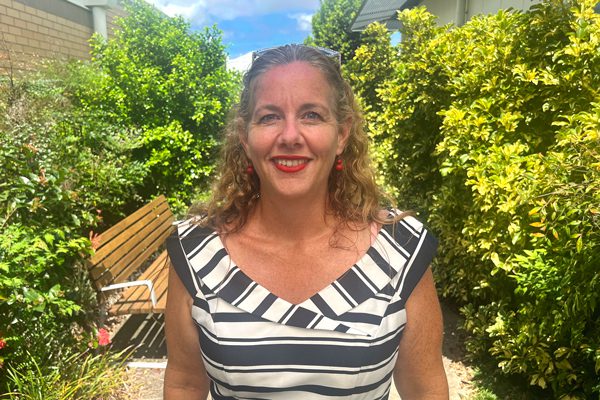Inclusive approach brings out the best

Red-Cab Mental Health Acting Professional Lead for Social Work and Advanced Social Worker for the Alcohol and Drug Service (ADS) Psychosocial Team Michelle Carter.
We’ve all done it. Nervously walked into a job interview. It’s fight or flight.
You sit down. It’s all very formal. The panel sits behind a large desk and before long starts firing questions at you. They take notes and occasionally nod. It can be tough going.
It’s a feeling that Metro North Red-Cab Mental Health Transitional Care Team Senior Social Worker Michelle Carter knows all too well.
Michelle is neurodiverse and celebrates her Attention Deficit Hyperactive Disorder (ADHD) as her superpower. It often is. However, traditional job interviews have long been her kryptonite.
Her employer, Metro North Red-Cab Mental Health has recently started, very deliberately, considering how it can get the best from candidates applying for jobs.
They recognised that some applicants may be neurodiverse, and a traditional interview may not bring out their best, so they needed to be more inclusive.
It was important to see how candidates performed over time, not during a short period under considerable stress and anxiety.
Michelle is now Red-Cab Mental Health Acting Professional Lead for Social Work and Advanced Social Worker for the Alcohol and Drug Service (ADS) Psychosocial Team.
“The panel was inclusive and, as a result, they got the best of me during the interview,” she said.
“This included simple adjustments such as sending questions prior, so I developed a PowerPoint to help present my answers.
“We sat around a table which created balance – no power, just sitting down having a conversation with sensory items on the table.
“They communicated to me that it was safe and acceptable to be who I am.”
Neurodiversity Celebration Week (18-24 March) is a worldwide initiative that challenges stereotypes and misconceptions about neurological differences.
It aims to transform how neurodivergent individuals are perceived and supported by providing schools, universities and organisations with the opportunity to recognise the many talents and advantages of being neurodivergent, while creating more inclusive and equitable cultures that celebrate differences and empower every individual.
The inclusive interview process meant Michelle was able to take some time to close tabs and concentrate on the interview and be at her best.
She is hopeful that her experience will encourage more people to see neurodiversity as a superpower, particularly hiring managers.
“I have had many years to harness my ADHD as a superpower for good and use it to maximise my own potential,” Michelle said.
“I am passionate about supporting managers involved in recruitment to think about ways to support people across all spectrums.
“My own recent experience was such a great example of recruitment done well.”
